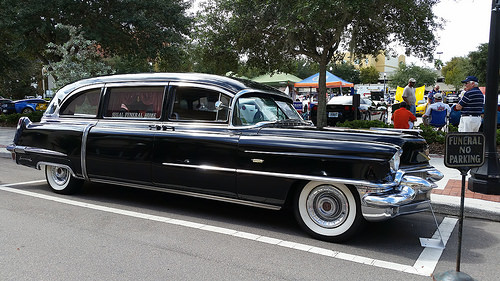If the deceased is a close friend or beloved family member, the answer is pretty obvious. Without an iota of doubt, it would be best if you attend. That is always the right and supportive move to do. Aside from offering support to the bereaved family members, it is your last chance to say farewell and honor your dearly departed loved one.
No Need for An Invitation
Funerals are a celebration of a life well-lived. But unlike other celebrations, you do not need an invitation to attend one. The information regarding the date, time, and place of the memorial service and interment is usually public knowledge. Chances are you would see all this data in an obituary on the local paper, or you can learn about it through word of mouth and via social media.
Unless the family has precise instructions that it is a private affair, you are welcome to the ceremonies and memorials. Even public figures who are well-loved by the masses open up their doors as a way to say goodbye. If you live nearby and you have a relationship with the deceased and his or her family members, your presence may even be missed if you are noticeably absent on this solemn occasion.
Pay Respect and Show Support
Remember that funerals are for both the living and the dead. You honor the deceased by paying your last respects. In the same token, by attending, you are showing your sympathies and giving comfort to the family he or she left behind. You may not be close to the deceased, but if you have a relationship with a close family member, then you must go as a sign of solidarity during their time of grief.
It is not easy to lose someone you love, so a show of condolences enriches the hearts of the bereaved family, and it gives them the strength to carry on. Bring flowers, mass cards, food, and whatever else you think would comfort the grieving family. The focus should always be on them because this is a very gut-wrenching period in their lives.
Extenuating Circumstance
However, not everything is cut and dry. Some extenuating circumstances may make you vacillate about attending the funeral. If you think your presence will be distracting, unsettling, disruptive, and upsetting to any family members of the deceased, then refrain from attending.
For example, if you are at odds with one of the siblings of the deceased and you think your presence may cause friction between you and your enemy, then set aside your feelings and skip the memorial and burial services. You wouldn’t want to be a reason why there is a huge drama at the wake or funeral.
Even if the deceased is a family member, if your presence may cause a considerable altercation, then it would be for the best to sit things out. You have to be the bigger person by putting peace and kindness at the forefront. There are other ways to pay your respects and say goodbye.
Other scenarios where you may have to skip a funeral is if you live out of town or out of the country. It is totally understandable why you just cannot drop everything and go. After all, you would need to take time off work and book flight arrangements, which may take time and cost a lot of money.
In the same token, if you are ill, then it is best to be absent from the services rather than contaminate everyone with your virus or bacterial infection. In this scenario, the bereaved family members will understand why you cannot make it.
Show of Support
Even if you cannot physically be there at the wake, burial, or cremation services, there are many other ways in which you can show your support for the family left behind. You can send flowers, give heartfelt sympathy cards, cook meals, offer a mass prayer intention on behalf of the deceased, or you can call the family members.
You can even leverage technology and say goodbye in your social media apps by turning your profile photo black, making a touching post, a photo collage, or a video about the life of the deceased and how you have been touched by it. The important thing is to honor the deceased and to show the grieving family that you are thinking of them.
Bottom Line
Those who are mourning find it comforting to know that other people care about them. They also appreciate seeing other people go out of their way to showcase their support personally. Attendance may not be required, but going shows how you value the deceased and the ones left behind.
Most of all, bereaved family members like seeing how their loved one influenced the lives of many others while he or she was still alive. After all, there is truth to the saying that “the life of the dead is placed on in the memories of the living.” Indeed anyone who has given love in their lifetime will always live on in the hearts of the lives they have touched.


